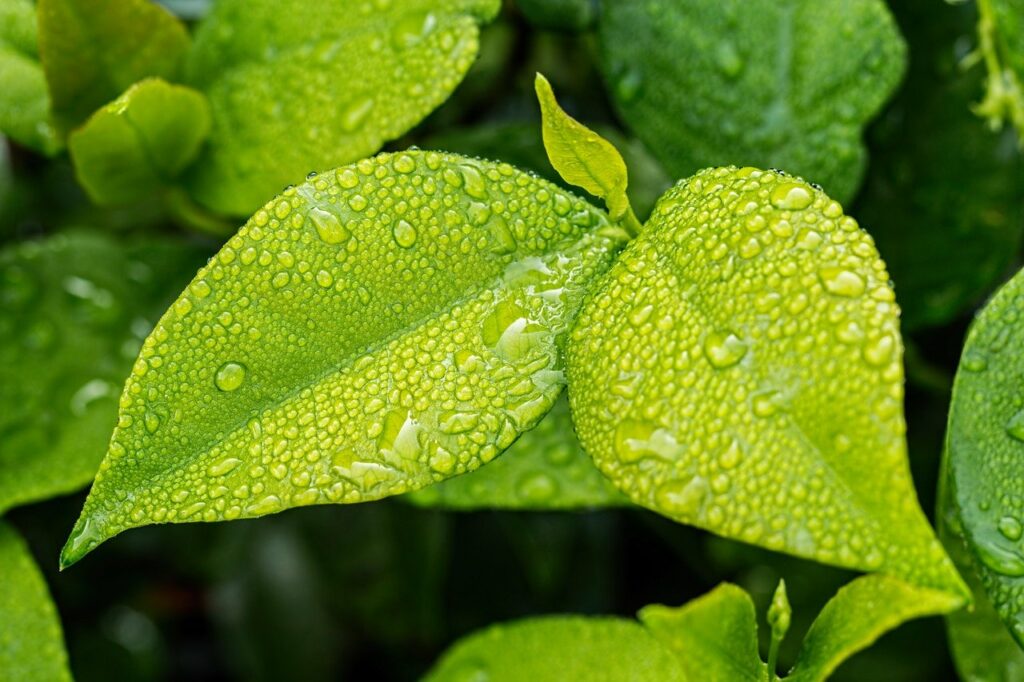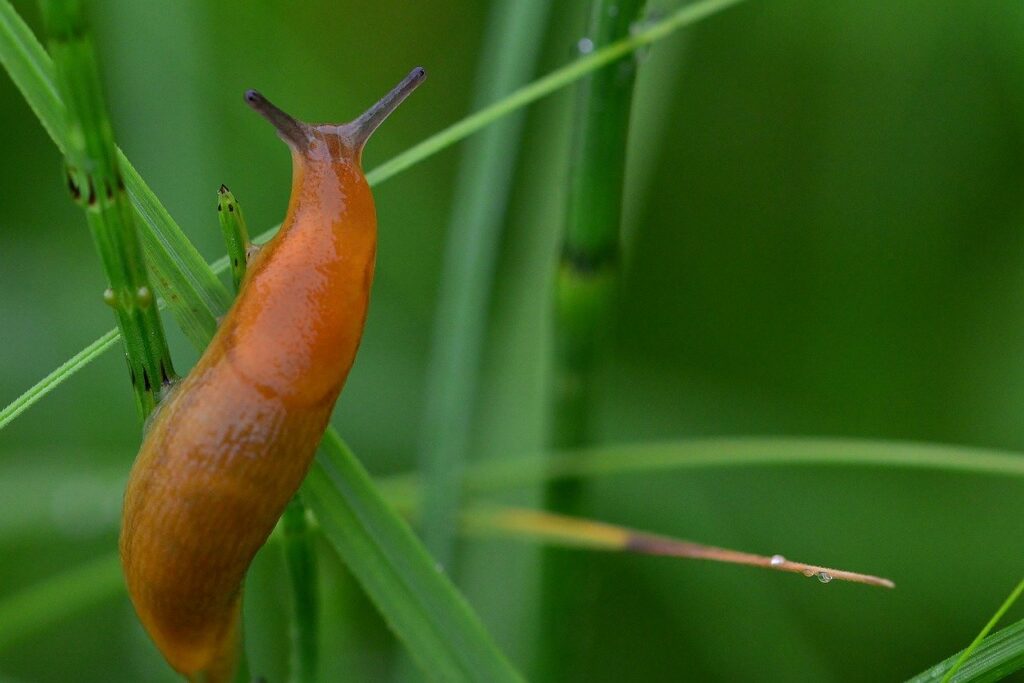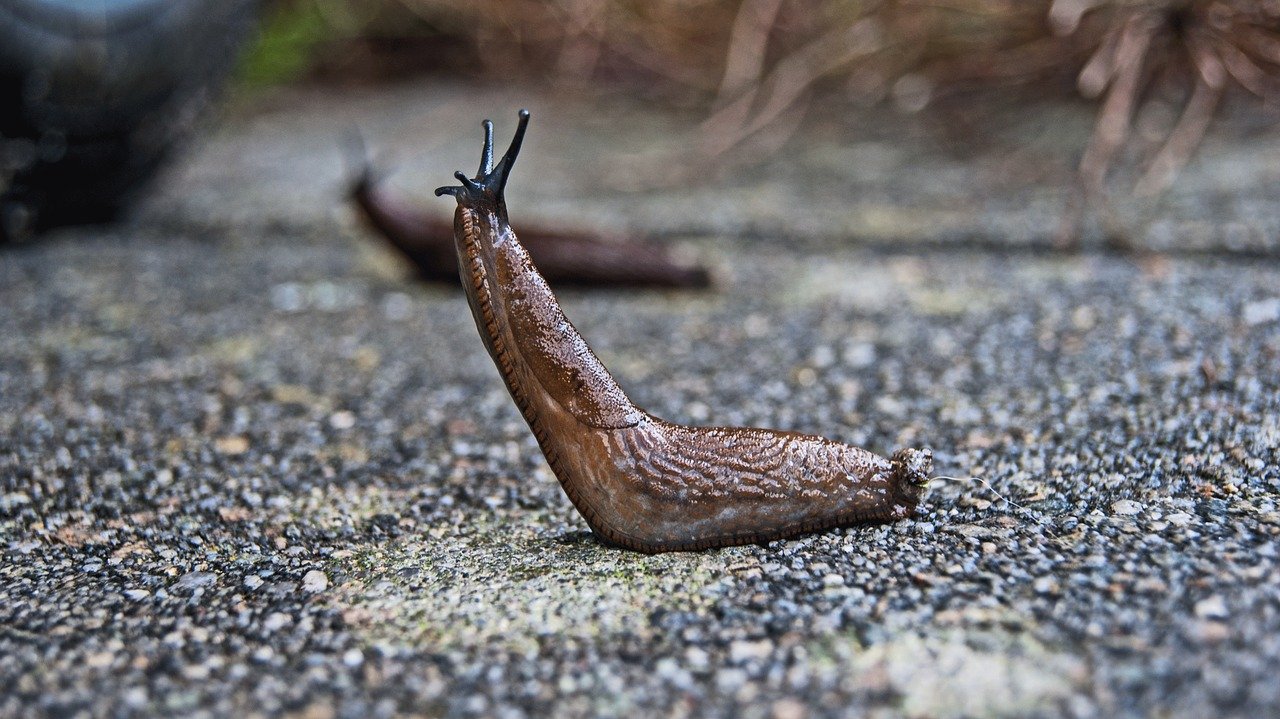Slugs are slimy and soft-bodied gastropods that can infest your garden. Due to extreme feeding patterns, these garden pests can damage plants, and destroy seedlings — severely reducing fruit and vegetable harvests. But what causes slug infestations? It is important to know this, so you can keep your garden free from these slimy pests.
Common causes of slug infestations are…
1. Your garden is too orderly
Nature is disorderly and untidy. But these traits are the very things that promote biodiversity and a proper ecosystem. If there is biodiversity, the different creatures compete with each other. In some cases, they even eat each other. This keeps everyone in check.
But your garden is a different place. It is orderly and neat. And you bomb it with pesticides every time you get the chance. Without biodiversity, one species, in this case, a slug, can dominate the area without anyone keeping it in check.
A simple solution here is to create a disorderly section in your garden to let many different creatures thrive. Let deadwood decompose. Dig up a small pond. Be creative.
2. Watering your plants too often can cause slug infestations
Slugs are very vulnerable to dry conditions. This is why they prefer moist places. If there is a food source nearby, the better. Your garden is the perfect area for a slug infestation. It is most of the time moist because you water your plants. It is also full of resources that slugs can feed on, such as fruits and plant leaves.
The simple solution here is to not overwater your plants. Only water them when necessary to avoid having prolonged moist conditions that attract slugs.

3. You don’t maintain your drains and vents
Yes, having prolonged moist conditions is one of the most common causes of slug infestations. But remember that these conditions can occur even in areas outside of your garden. The drains and vents near your garden are especially attractive to slugs. These areas are moist and in close proximity to a food source (your garden.)
Clean them regularly. You have a lot of incentives for doing this. Unkempt drains and vents attract other pests that are attracted to moisture and stagnant water. Mosquitoes are the first ones that come to mind because they use gutters as breeding grounds.
4. You leave pet food outside unattended
Slugs have a diverse diet. They can feed on earthworms, fruits, fungi, mold, plant leaves, and even pet food. Slugs can eat cat, dog, and even chicken food. Leaving these food items unattended in your garden, lawn, or yard will attract these garden pests.
It’s important to constantly look out for your pets if you allow them outside. Unattended pet food will attract slugs and other pests. Unattended pet excrement will attract dirty insects like house flies.
5. You grow plants that are attractive to slugs
Even though slugs have a diverse diet, they do have preferences. Beans, cabbages, celeries, cucumbers, pumpkins, and strawberries are absolute slug magnets. If you have these in your garden, you should exert more effort in keeping slugs away.
Flower and herb gardens are not as vulnerable because there is a long list of flowers and herbs that slugs don’t like. The vulnerable flowers include dandelions, marigolds, and sunflowers. And the vulnerable herbs include basils and parsleys.
If you have these, it’s a good idea to use barriers like slug collars and slug fences. If you don’t have these, good for you. But you can actually put these in your garden to combat slug infestations.
This is called the sacrificial bed method. In this method, the gardeners will assemble a bed of flowers and herbs slugs are attracted to and place it in their garden. This way, slugs will gather in this bed instead of the more valuable things in their garden.

Most of the causes of slug infestations are your own doing. But there are other causes that are not in your full control. For instance, if you live in an area with winters that are not that cold, you are more vulnerable to slug infestations.
6. You live in an area with mild winters
This is because prolonged cold conditions naturally decrease slug populations. It doesn’t help that slugs are pretty resilient too when it comes to cold. Spanish slugs, for instance, can survive in temperatures as low as -10° Celsius while their eggs can survive in as low as -20° Celsius.
7. You live in an area with high light pollution
Again, this is something that is not in your full control. The nights here on Earth have been bright since the industrial revolution. This may be a good thing for humans, but it has a negative effect on some animals, particularly those that are nocturnal.
Because of the abundance of artificial lights, the populations of light-sensitive insects like fireflies have decreased. This is bad news for your garden because fireflies are notorious slug hunters. Without them, there are fewer creatures keeping slugs in check in your area.
8. You always bomb your garden with pesticides
Pesticides are effective… They kill insects and other unwanted guests in your garden. They ensure that your plants will thrive without creatures that can interfere with their growth. But they have a downside — they also kill those that are not inherently bad and are actually protecting your garden from more harmful creatures. Also, pesticides can be dangerous to pets and ourselves — they are not always ecological and often bad for the environment. So if you can go natural…
For example, toads are natural predators of slugs. But toads won’t even visit your garden if it is devoid of insects that they can feed on. Without toads and other natural predators of slugs, your garden becomes vulnerable to slug infestations.
There are many different causes of slug infestations
There are many different causes of slug infestations. Many times, they are your own doing, like your overreliance on pesticides and other gardening habits. But sometimes, they are also outside your control, like being in an area with mild winters and high light pollution.
Preventing slug infestations is always better than getting rid of them. But in the event that you need to get rid of these garden pests, make sure to call a pest control professional instead of relying on DIY methods.

